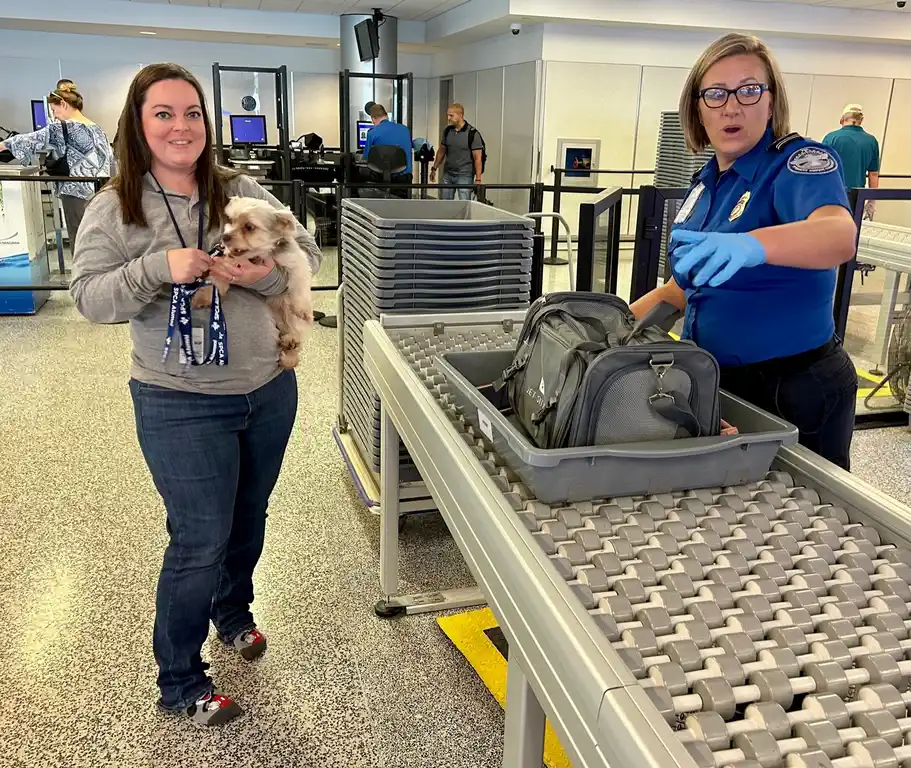Pawsitively Baja: Your Quick Guide to Traveling with Pets
Dreaming of exploring Baja California’s beaches, towns, and landscapes with your furry friend? It’s a fantastic experience, but requires planning! This guide covers the essentials for bringing your dog or cat to Baja California from the US/Canada and back.
Crossing into Mexico (SENASICA Rules)
Mexico’s agency, SENASICA, oversees pet imports. Key points for US/Canada travelers:
Land Border:
- Health Certificate: Not required by SENASICA since 2019.
- Vaccinations: Proof of current rabies vaccination is recommended, though not always checked.
- Parasite Treatment: Proof of internal/external treatment within 6 months is technically required, but often not checked at land crossings. Pet must be free of visible parasites.
Air Travel:
- Health Certificate: Check with your airline. Most airlines do require a health certificate (issued 10-15 days pre-travel), even if SENASICA doesn’t for US/Canada origin.
- Vaccinations & Parasite Treatment: Required by airlines and SENASICA inspection. Rabies needed (unless < 3 months old), parasite treatment within 6 months.
All Entries:
- Inspection: All pets undergo a visual inspection by SENASICA. Ill pets or those with parasites may face treatment costs or entry denial.
- Microchip: Recommended for safety, but not required by SENASICA.
- Number of Pets: Up to 2-3 pets per person usually allowed without fees. More may incur fees (~$1620-$1882 MXN per extra pet).
- Pet Food: Bring only a day’s ration unless it’s in the original, sealed, commercially branded bag (up to 50 lbs dry food per family allowed). Many brands available locally.
- Carriers: Must be clean and empty (no bedding, toys, treats) during inspection. Collar/leash is okay. Carrier will be disinfected.
- Pets with Medical Conditions: Bring a vet’s letter on letterhead explaining the condition/treatment.
Enjoying Baja California with Your Pet
- Accommodations: Growing pet-friendly options (hotels, rentals) exist in Rosarito, Ensenada, and Valle de Guadalupe. Always confirm pet policies and fees directly before booking. Use filters on VRBO, Airbnb, BringFido, Booking.com as a starting point. Beaches & Parks:
- Rules: Assume leashes are required in all public areas unless in a designated off-leash zone. Always clean up pet waste. Provide water/shade. Check local signage.
- Rosarito: Leash/cleanup required. Playa Marisol mentioned but may be unfenced/dirty. Check local park rules.
- Ensenada: Leash/cleanup required. Playa El Cocodrilo noted as dog-friendly.
- Tijuana: Several dog-friendly parks exist, some with off-leash areas (Parque Agua Caliente, Parque Canino De Las Américas, Parque Azteca Sur).
- Dining: Many restaurants with outdoor patios welcome well-behaved, leashed pets, especially in Rosarito, Ensenada, and Valle de Guadalupe. Always ask first.
Health & Safety in Baja California
- Vets & Supplies: Vets available in Tijuana, Rosarito, Ensenada, Mexicali. Identify one upon arrival. Petco stores in Tijuana, Mexicali, Ensenada. Common food brands readily available.
- Heat: Baja gets hot! Prevent heatstroke by providing water/shade, avoiding midday exercise, never leaving pets in cars, and watching for hot pavement.
- Parasites: Ticks (can carry Rocky Mountain Spotted Fever ), heartworm (mosquito-borne), fleas, and worms are risks. Consult your vet before travel for appropriate, broad-spectrum prevention.
- Wildlife: Be aware of rattlesnakes, coyotes in rural areas. Keep pets leashed.
Returning to the U.S. (CDC Rules – Effective Aug 1, 2024)
For dogs returning from Mexico (low-risk country) that have only been in low-risk countries for the past 6 months:
- CDC Dog Import Form: Required. Complete online before arrival, present emailed receipt.
- Minimum Age: Dog must be at least 6 months old.
- Microchip: Must have an ISO-compatible microchip.
- Health: Dog must appear healthy.
- Rabies Vaccination: Proof not explicitly required by CDC for this specific entry scenario, but highly recommended (may be needed by state/airline).
- USDA/State/Airline Rules: Check for any additional requirements from USDA-APHIS, your destination state, and your airline.
Disclaimer: Regulations change. Always verify current rules with official sources (SENASICA, CDC, USDA, airlines, state vet) before travel.




